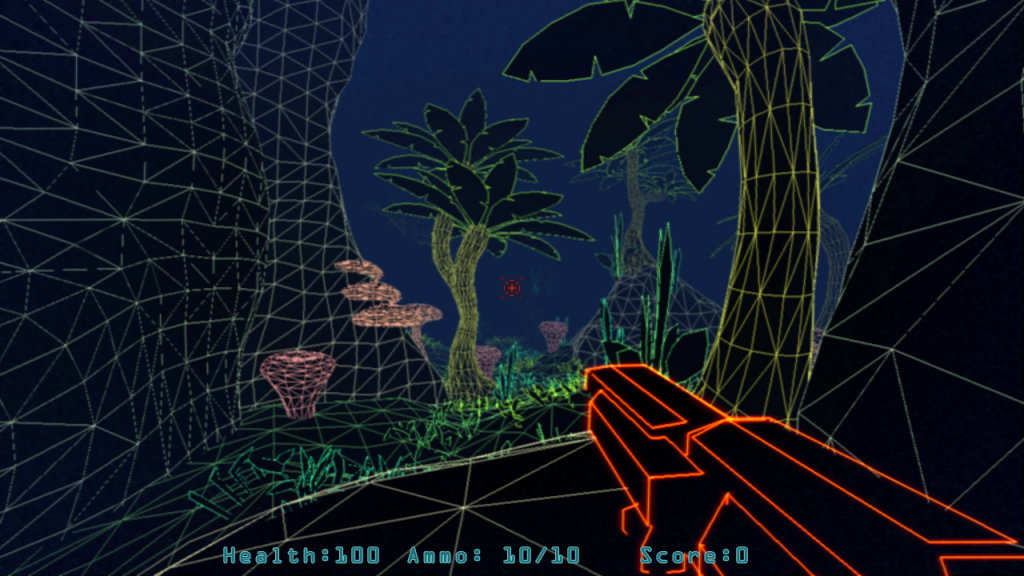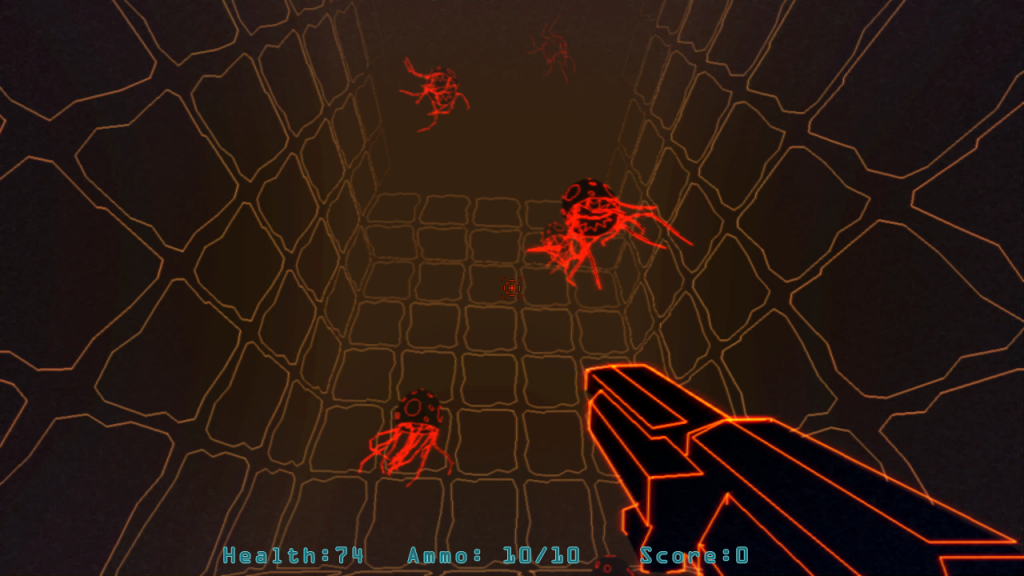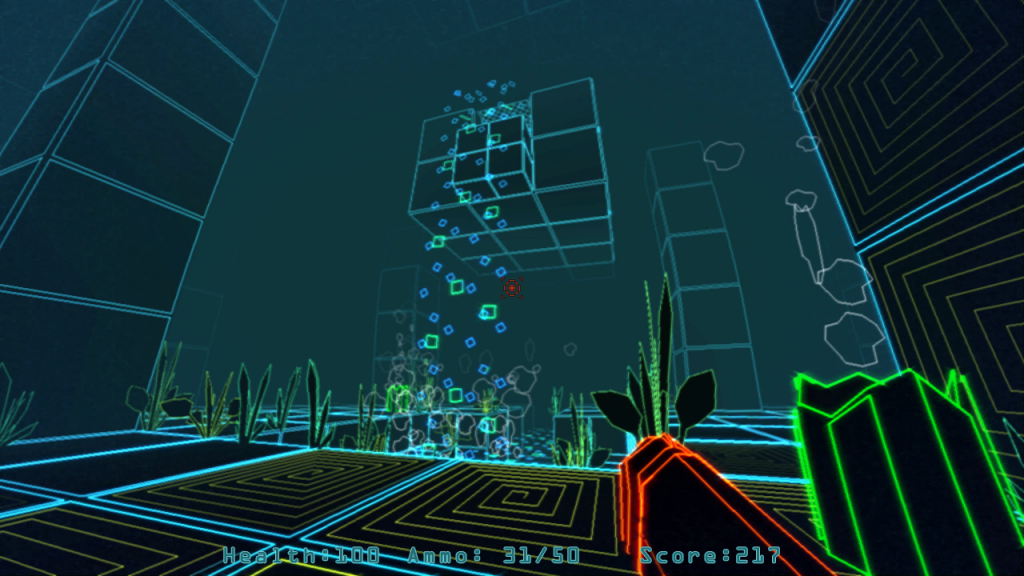Let’s take a step back into the past, more specifically the 1960s when “Doctor Who” aired its first episode, The Beatles came to America, and vector graphics were commonly used in computer displays and artwork of the decade. Now, if you aren’t familiar with vector graphics, they are computer images made up of various lines, points, and curves that result in polygons.
The unique thing about these graphics is that they are created from mathematical formulas, which gives them the advantage of scaling to any size without fear of aliasing. Basically, they are really cool building blocks for a video game, software, and graphic developers.
Paradox Vector is a first-person shooter that was developed and published by Schmidt Workshops, a one-man indie dev company. Imagine playing a Doom game designed by M.C. Esher, while on acid: that’s the feeling you get from Paradox Vector.
I want to take a moment to encourage you to check out their page on Steam. Indie developers are becoming a larger part of the modern video game scene and it is no easy task to make a finished product, ask any artist. That is why it is important, as members of the gaming community, that we support smaller studios generating unique, quality content.
Ok, back to the review!

Gameplay
The game starts you in a cell block with no real information given to you on what’s happening, where you are, or even who you are. The objective, I’m here to tell you, is to find all nine paradox triangles hidden within different dungeons in the game.
Overall, the game really doesn’t do a lot in the way of explaining itself to the player, which can be both helpful and hurtful. On one hand, it gives the game a sense of mystery and exploration, making the loot you find that much more rewarding. On the flip side, it can be incredibly frustrating to play a game where you don’t know what the heck is going on. It took me plenty of time to navigate the first couple dungeons, partly due to the lack of information given in Paradox Vector.
As far as actual gameplay, you essentially walk around or sprint like an olympian, shooting enemies and dodging their attacks. For this, I really would’ve appreciated any form of health or damage indicator. Some of the enemies, like the spiders and spikey balls, seemed like they damaged you no matter what. Overall the game runs pretty smooth, but there are definitely some adjustments to be made.

Design
Paradox Vector, like all Schmidt Workshops games, is built heavily around the visuals and the overworlds. They do a really nice job here, combining what might now be considered ancient graphics with FPS mechanics. The game is really reminiscent of Doom in that it is an FPS game set in dungeons which you have to find your way out of by killing things.
It is, however, unique for its design choice to intentionally confuse the player as part of the aesthetic, which makes playing the game the hardest obstacle. While it is gorgeous, expansive, and creative, I feel that it leans too far in the direction of confusion and is one of the reasons I didn’t play it through its entirety. The audio fits the style of game it is, but there’s nothing really of note here.

Paradox Vector overall thoughts
If you are a fan of FPS games and indie developers, I would highly suggest you check Paradox Vector out. The game feels smooth and looks great. It is significantly lacking in narrative however and can be quite frustrating to play at times. I really think with some more work this title could be wonderful.
Paradox Vector is developed and published by one-man indie studio Schmidt Workshops, and is available now on PC. Fancy checking out more of our game reviews? Click right HERE.